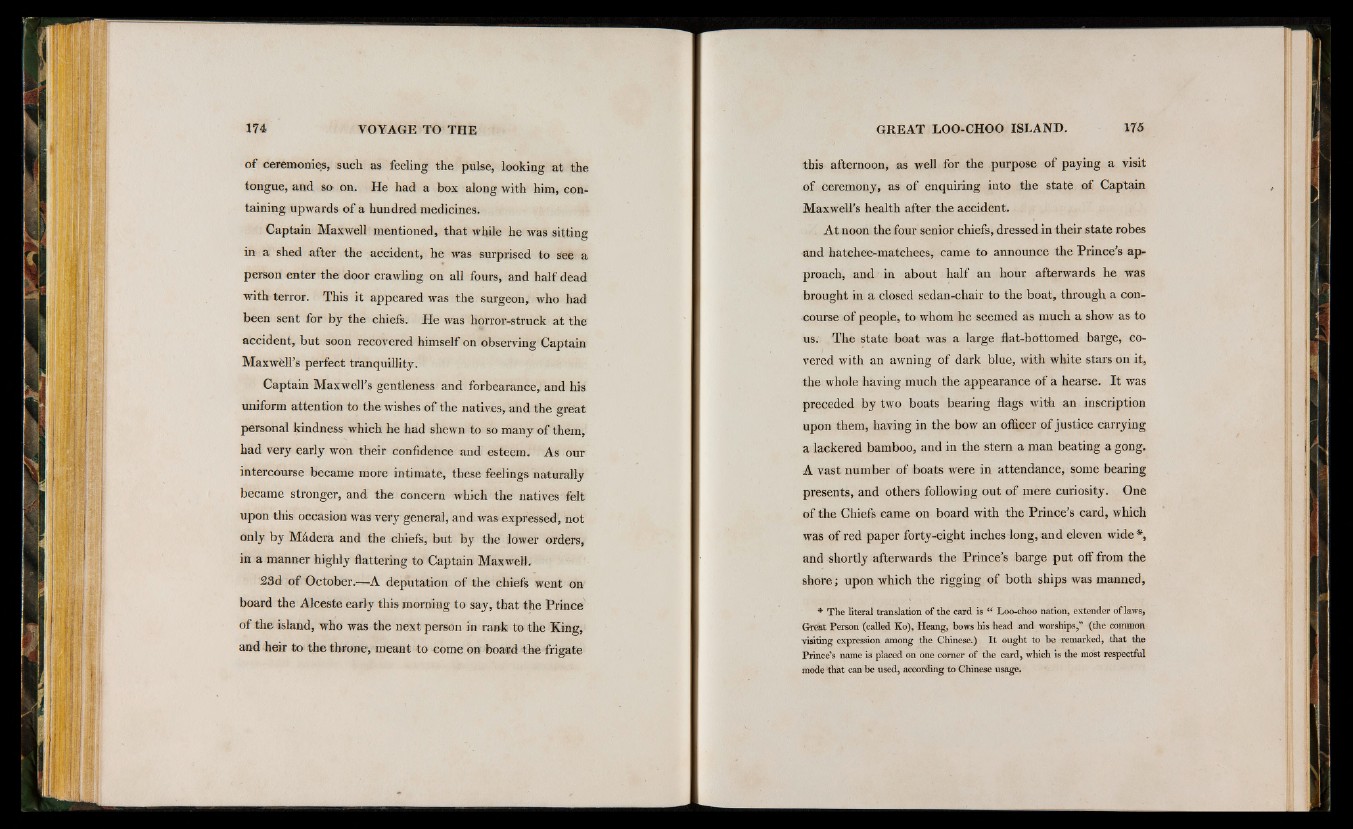
of ceremonies, such as feeling the pulse, looking a t the
tongue, and so on. He had a box along with him, containing
upwards of a hundred medicines.
Captain Maxwell mentioned, that while he was sitting
in a shed after the accident, he was surprised to see a
person enter the door crawling on all fours, and half dead
with terror. This it appeared was the surgeon, who had
been sent for by the chiefs. He was horror-struck at the
accident, but soon recovered himself on observing Captain
Maxwell’s perfect tranquillity.
Captain Maxwell’s gentleness and forbearance, and his
uniform attention to the wishes of the natives, and the great
personal kindness which he had shewn to so many of them,
had very early won their confidence and esteem. As our
intercourse became more intimate, these feelings naturally
became stronger, and the concern which the natives felt
upon this occasion was very general, and was expressed, not
only by MAdera and the chiefs, but by the lower orders,
in a manner highly flattering to Captain Maxwell,
23d of October.—A deputation of the chiefs went on
board the Alceste early this morning to say, that the Prince
of the island, who was the next person in rank to the King,
and heir to the throne, meant to come on board the frigate
this afternoon, as well for the purpose of paying a visit
of ceremony, as of enquiring into the state of Captain
Maxwell’s health after the accident.
At noon the four senior chiefs, dressed in their state robes
and hatchee-matchees, came to announce the Prince’s approach,
and x in about half an hour afterwards he was
brought in a closed sedan-chair to the boat, through a concourse
of people, to whom he seemed as much a show as to
us. The state boat was a large flat-bottomed barge, covered
with an awning of dark blue, with white stars on it,
the whole having much the appearance of a hearse. I t was
preceded by two boats bearing flags with an inscription
upon them, having in the bow an officer of justice carrying
a lackered bamboo, and in the stem a man beating a gong.
A vast number of boats were in attendance, some bearing
presents, and others following out of mere curiosity. One
of the Chiefs came on board with the Prince’s card, which
was of red paper forty-eight inches long, and eleven wide*,
and shortly afterwards the Prince’s barge pu t off from the
shore; upon which the rigging of both ships was manned,
* The literal translation of the card is “ Loo-choo nation, extender of laws*
Great Person (called Ko), Heang, bows his head and worships,” (the common
visiting expression among the Chinese.) I t ought to be remarked, that the
Prince’s name is placed on one comer of the card, which is the most respectful
mode that can be used, according to Chinese usage.